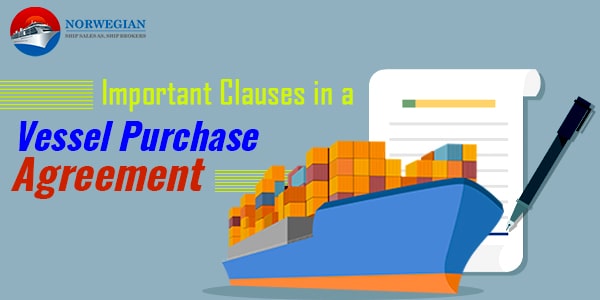High speed vessels for sale is a regular activity in the maritime industry, even when the market is sluggish. In fact, many try to make good uses of an adverse market condition for better bargains on the purchase of vessels and other related equipment. Once the buyer has found a vessel suitable, and the parties involved have reached an agreement, all sides work towards inking the deal by signing a purchase and sale agreement. What is important to consider is that the agreement sufficiently addresses all the key issues, so that there are no problems later on.
Here is a checklist of the key business and legal issues that need to be addressed when preparing a vessel purchase agreement.
Inspection
There are differences in these clauses and they widely differ as per the circumstances applied. Hence, if the buyer is satisfied with the vessel’s condition, the contract may include the clause that the sale is complete and definite on its execution and there will be no right of inspection. However, in the case of larger or classed vessels that are fitted with specialized equipment, the buyer has the right to inspect the vessel as well as its class records and if dissatisfied with the vessel’s condition can end the contract and receive the deposit made or ask for an adjustment in price. If the contract includes inspection, the scope of the inspection needs to be specified, and should also include a timeline for it, failing which the resultant consequences, as well as the allocation of inspection costs and insurance and indemnity for claims of inspectors should be mentioned.
Deposit
For any deposit to make, the agreement should include the sum agreed upon and the conditions under which it will be taken as null and void.
Time and Place of Delivery
The related clauses related to time and place of delivery should include consequences, should there is a failure to timely deliver the vessel or the right of cancellation or liability for the damages.
Drydocking or Diver’s Survey
These provisions address the various circumstances that make require the buyer for dry-docking or diver’s inspection, who will bear the cost of these inspections, which may be based on inspection results, and the insurance and indemnity related to claims during dry-docking. The clauses may also include the right of the buyer to inspect the tail shaft or other components of the vessel during dry-docking.
Total Loss Before Sale
These clauses relate to the right of the buyer to call off a deal if the vessel turns out to be total loss before its delivery.
Bunkers, Spares
The related clauses typically consider how and when there will be quantification and pricing of bunkers, spares and other equipment of vessel delivery, and whether there will be the inclusion of these items in the price or to be paid separately.
Closing Documentation
The key issue here is to ensure that the contract includes the seller’s deliverables like the related certificates and other documents required for the registry that the buyer considers using. The contract should contain clauses to deliver these as a condition of paying the purchase price. This would help the buyer in not having to chase the seller after closing the deal for the specific paper required for completing the registration of the vessel in the name of the purchaser.
Vessel Purchase and sale agreement with ship broker companies Norway or elsewhere also include other customary provisions to address the following:
- Seller’s responsibility to sell the vessel from all encumbrances, mortgages charters, mortgages and liens.
- Seller’s indemnity for claims made before the delivery and asserted after delivery.
- The responsibility for fees, expenses, and taxes.
- The condition of the vessel and equipment needed after delivery.
- Failure on the part of the buyer or seller and the resultant consequences.
Resolution of disputes.
Conclusion
High speed vessels for sale and purchase present many challenges, both legal and practical. However, careful planning and execution could help to overcome many of these challenges. Make sure not to hesitate for negotiation of what you think is important and make the necessary revision of the agreement accordingly.


